Enceladus - Life In Our Solar System?
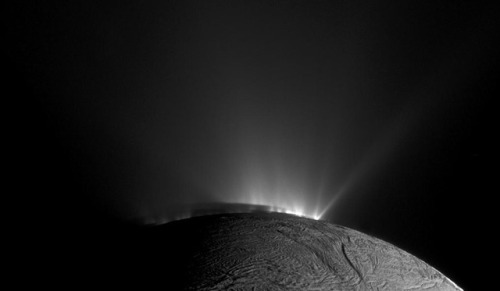
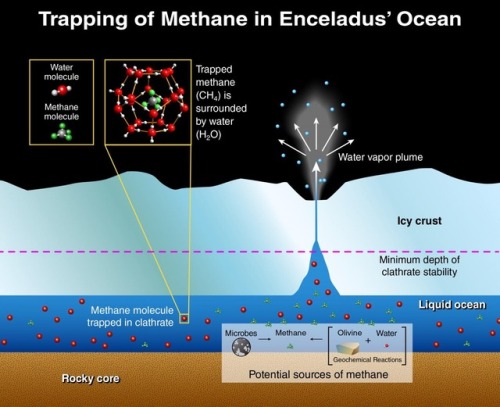
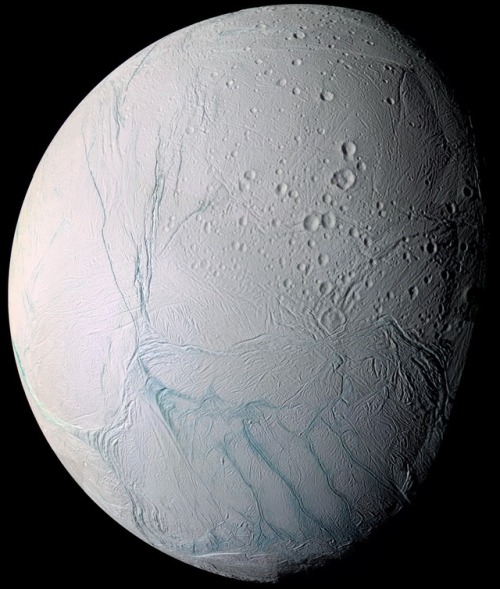
Enceladus - Life in our solar system?
Enceladus is Saturns icy moon that measures approximately 504km in diameter, about a tenth of the size of Saturn’s largest moon Titan. Almost completely covered in ice, this moon could potentially harbour the same type of life-sustaining chemical reactions found in deep sea hydrothermal vents here on Earth.
In 2005, NASA’s Saturn orbiting Cassini spacecraft spotted geysers of water and ice erupting fro fissures near Enceladus’ South Pole. Scientists believe they originate from a great ocean beneath the shell of ice. This ocean manages to stay liquid because the gravitational force exerted by Saturn is so intense that it twists and stretches the moon generating internal heat.
In October 2015, Cassini went on a dive through one of the plumes passing within just 39km of Enceladus’ surface. A team of scientists led by Hunter Waite analysed the observations made by the spacecraft. They discovered that the geysers contain between 0.4%-1.4% molecular hydrogen (H2) and 0.3%-0.8% carbon dioxide (CO2). These are being produced continuously by reactions between hot water and rock near the core of the moon. Some of the most primitive metabolic pathways found in microbes at deep ocean hydrothermal vents involve the reduction of CO2 with H2 to form methane (CH4) by a process known as methanogenesis.
More Posts from Astrotidbits-blog and Others

Our planet seen from Saturn, captured by the Cassini spacecraft
Image credit: NASA / Cassini
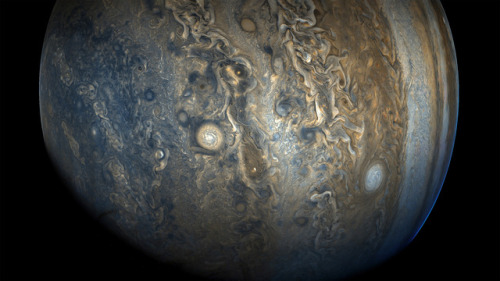
What a stunner! See Jupiter’s southern hemisphere in beautiful detail in this new citizen-scientist-processed JunoCam image.
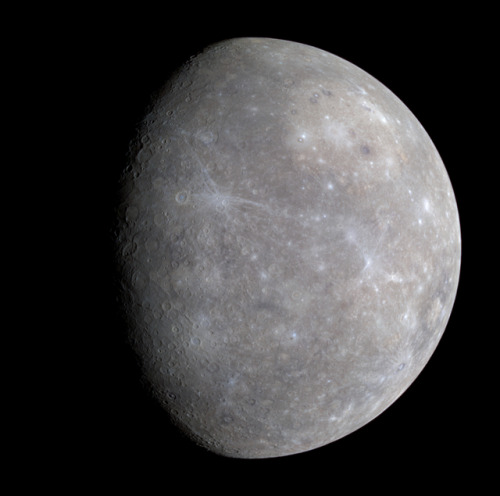
Mercury in enhanced color, imaged by MESSENGER
Credit: NASA / JPL
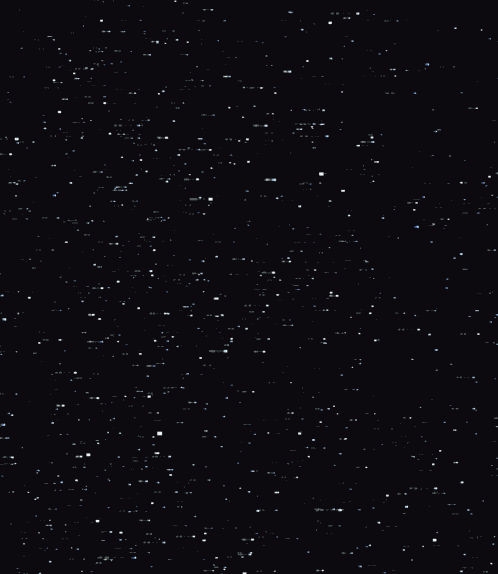
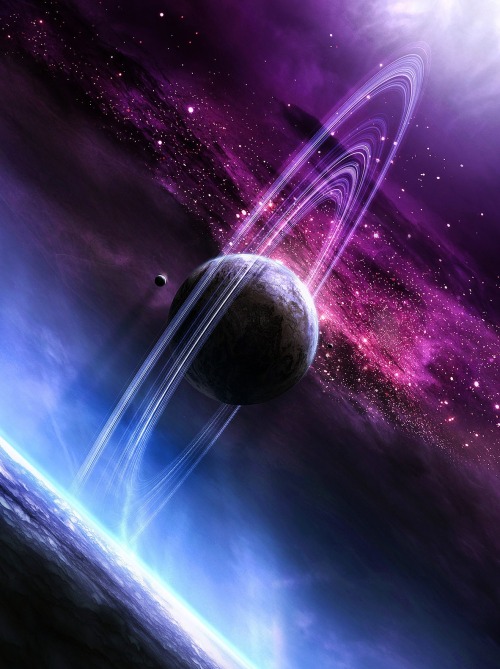

Aerospace Engineering Magazine April 1962


NASA’s Cassini spacecraft shows Earth and its moon from between Saturn’s rings
NASA’s Cassini spacecraft, which orbits Saturn, took a picture of Earth from between Saturn’s rings — with Earth’s moon at its side.
Captured at 1:41 a.m. Eastern on April 12, 2017, the spacecraft was 870 million miles away from its home planet when it took the image.
Earth is seen as a tiny bright speck in the center of the picture. Upon cropping and zooming in, its moon can be seen to the left as an even smaller dot. The photograph, captured by the Imaging Science Subsystem, doesn’t clearly show which part of Earth is facing the ringed planet at the time the picture was taken, but NASA has revealed it is the southern Atlantic Ocean. Read more (4/21/17)
follow @the-future-now

Comet Lovejoy C/2013 R1. Taken by Gerald Rhemann, December 2013.

Solar
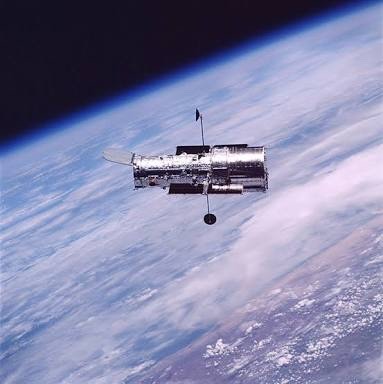

Hubble has been 27 years in space, being launched in April 24, 1990. The first image it shoot was the star cluster NGC 3532.
-
 elledaniels1 liked this · 5 years ago
elledaniels1 liked this · 5 years ago -
 alux-ulkan reblogged this · 5 years ago
alux-ulkan reblogged this · 5 years ago -
 alux-ulkan liked this · 5 years ago
alux-ulkan liked this · 5 years ago -
 thescribblingtree liked this · 5 years ago
thescribblingtree liked this · 5 years ago -
 earthart1 reblogged this · 5 years ago
earthart1 reblogged this · 5 years ago -
 charisechavez liked this · 6 years ago
charisechavez liked this · 6 years ago -
 sonicsoundscapes liked this · 6 years ago
sonicsoundscapes liked this · 6 years ago -
 movienightsandfairylights reblogged this · 6 years ago
movienightsandfairylights reblogged this · 6 years ago -
 movienightsandfairylights liked this · 6 years ago
movienightsandfairylights liked this · 6 years ago -
 ethioblogster liked this · 6 years ago
ethioblogster liked this · 6 years ago -
 blackdowning liked this · 6 years ago
blackdowning liked this · 6 years ago -
 sailormoon-3 liked this · 6 years ago
sailormoon-3 liked this · 6 years ago -
 spaceblogger32-blog liked this · 6 years ago
spaceblogger32-blog liked this · 6 years ago -
 toodlumx liked this · 7 years ago
toodlumx liked this · 7 years ago -
 ukullele liked this · 7 years ago
ukullele liked this · 7 years ago -
 casualwanderess liked this · 7 years ago
casualwanderess liked this · 7 years ago -
 galand20 liked this · 7 years ago
galand20 liked this · 7 years ago -
 indianswiftiesstuff liked this · 7 years ago
indianswiftiesstuff liked this · 7 years ago -
 books-for-hermione-blog liked this · 7 years ago
books-for-hermione-blog liked this · 7 years ago -
 millerscritters reblogged this · 7 years ago
millerscritters reblogged this · 7 years ago -
 bicyclebrookie liked this · 7 years ago
bicyclebrookie liked this · 7 years ago -
 marvi-jude94 liked this · 7 years ago
marvi-jude94 liked this · 7 years ago -
 gleabae liked this · 7 years ago
gleabae liked this · 7 years ago -
 hussyhussy liked this · 7 years ago
hussyhussy liked this · 7 years ago -
 dokbuatapa liked this · 7 years ago
dokbuatapa liked this · 7 years ago -
 crivier-creiver liked this · 7 years ago
crivier-creiver liked this · 7 years ago -
 chechekatawan-blog liked this · 7 years ago
chechekatawan-blog liked this · 7 years ago -
 cmdrdozer-blog liked this · 7 years ago
cmdrdozer-blog liked this · 7 years ago -
 annamooremoore liked this · 7 years ago
annamooremoore liked this · 7 years ago -
 summerstormwatcher reblogged this · 7 years ago
summerstormwatcher reblogged this · 7 years ago -
 inexpressib1e liked this · 7 years ago
inexpressib1e liked this · 7 years ago -
 for-sotela reblogged this · 7 years ago
for-sotela reblogged this · 7 years ago